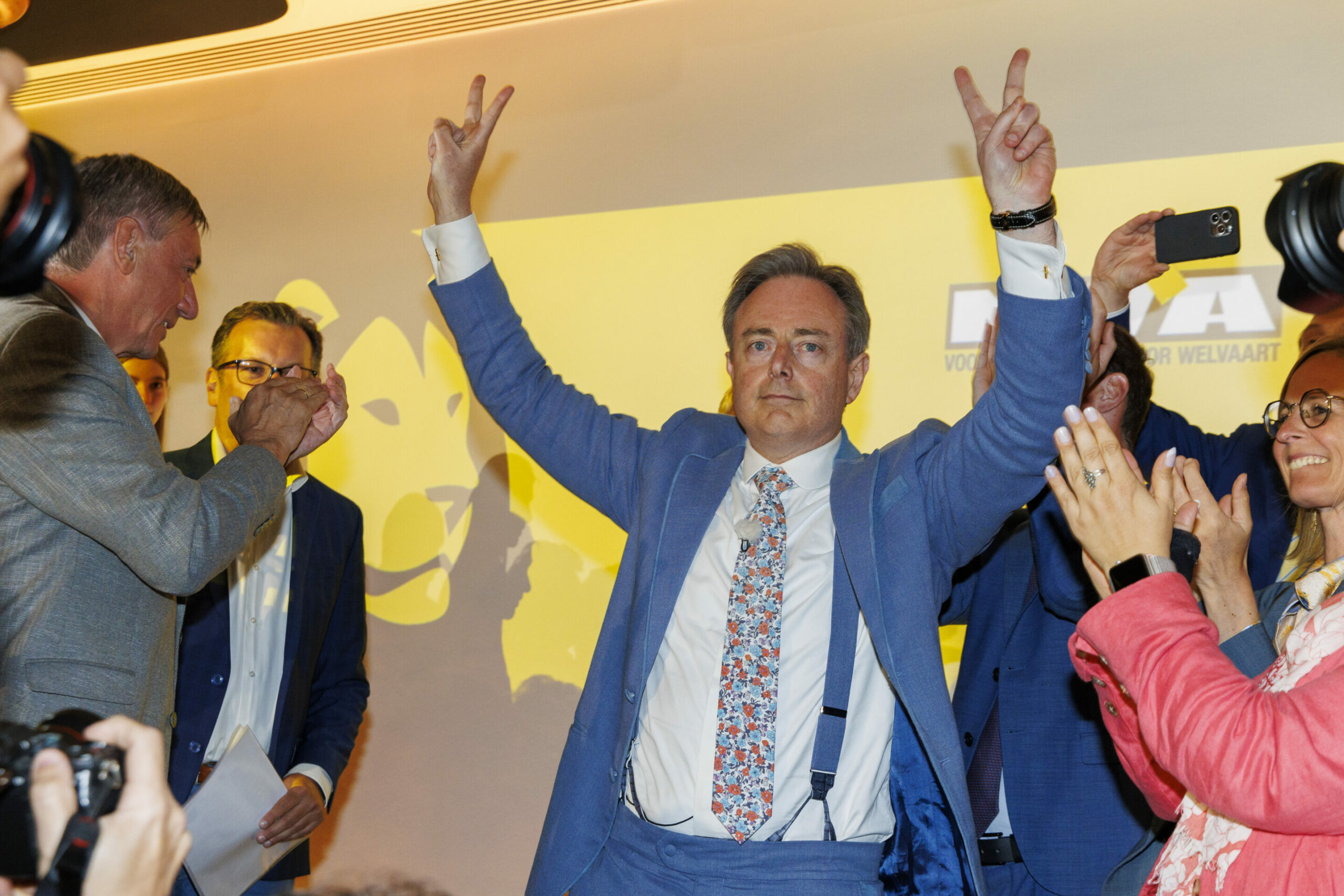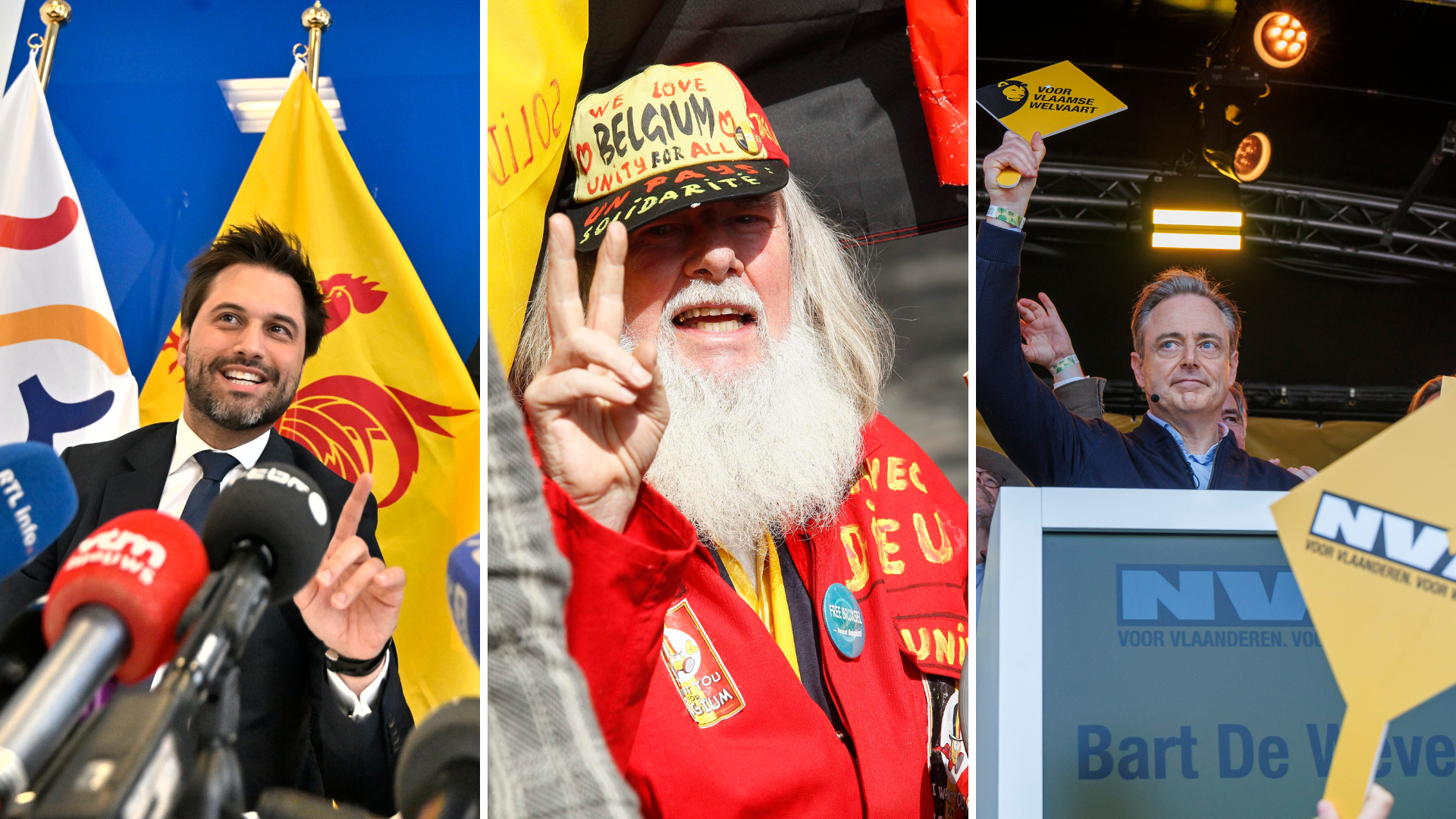Belgium's seismic election day saw the nation's political pendulum swing to the right, though to varying degrees depending on the region. What coalitions could take shape is now central to public debate and as separatist parties top the results in Flanders, is Flemish independence really on the cards?
The Brussels Times spoke to VUB professor and UAntwerp researcher Jonas Lefevere to get a clearer idea of these hot topics. It took 541 days to form a federal parliament in 2010 – are we in for a similar wait?
In both Brussels an Wallonia, the Francophone liberals Mouvement Réformateur (MR) surged in popularity to become the biggest party in both regions. In Flanders the right-wing separatist N-VA retained its top spot. But with no party securing an outright majority at either the regional or federal levels, partnerships between political groups are key.
MR party leader Georges-Louis Bouchez was keen to start making deals "as quickly as possible", and other indicators suggest that government formations might be managed more swiftly than following previous elections.
Several parties have already ruled themselves out of a governing coalition, dramatically reducing the coalition possibilities. The Socialist Party (PS) was one of Sunday's big losers and has resigned itself to "renewal in opposition". Lefevere explains that parties are often more willing to spend a term in the opposition after losing seats, giving them time "to think about where they are ideologically" and from a position where they are not forced to compromise on their core beliefs.
— Parti Socialiste (@PSofficiel) June 10, 2024
Translation: PS has decided to go into opposition. We have heard voters following the elections on 9 June 2024. The party's leadership has decided to go into opposition. Thank you to all voters who chose PS.
Dutch-speaking liberals Open VLD also had a disastrous election, falling below 10% at the federal and Flemish levels despite being the home party of Prime Minister Alexander De Croo. "The entire party board has resigned, which is a pretty clear signal," says Lefevere. "They took a beating and are not going to govern. That really reduces the options, especially at the federal level."
Lefevere raises the one possible coalition that is now much discussed: the "Arizona coalition" which would bring together N-VA, MR, CD&V (Flemish Christian Democrats), Les Engagés (centre-right Francophones) and Vooruit (Flemish socialists). The tricky one here is Vooruit, which is ideologically at odds with the other partners. Would it enter a majority with a group of right-wing economic partners, leaving its French partners PS behind and risking punishment from the left? Without Vooruit, this formation fails to muster a majority.
The Flemish far-right
Also key in the calculation is Belgium's cordon sanitaire, which historically has excluded Vlaams Belang from government formations. Even if N-VA were to break this convention – something it has said it will not do – the two parties would be one seat short of a majority. As no other party will govern with Vlaams Belang, the cordon sanitaire is expected to hold.
That being said, the right-wing and the far-right made significant gains in Flanders, with 46.8% of the regional vote going to either N-VA or Vlaams Belang. Can this be read as an endorsement by almost half of the population for Flemish independence? Not necessarily, Lefevere says, pointing out that the issue wasn't a major part of the election campaign (though it is a defining policy of both parties). More likely N-VA and Vlaams Belang attracted voters for their focus on migration and economic prosperity.
"Very few people actually want a completely independent Flanders. It's just part of the package deal when they choose the nationalist and the radical right."
Lefevere imagines that N-VA – the kingmaker in forming the Flemish Government – will take a pragmatic approach to state reform during the upcoming mandate in the knowledge that this wasn't why voters got behind them. However, in his victory speech on Sunday night, party leader Bart de Wever emphasised the importance of Flemish independence, suggesting a more hardline stance than was taken during the campaign.

A triumphant Bart De Wever at N-VA's post-election meeting on Sunday night. Credit: Belga / Nicolas Maeterlinck
'All bets are off'
Forming the outgoing Vivaldi government took 494 days in 2020, and Belgium had already earned the dubious title of being the country to go the longest without a sitting government in 2010. Could this be repeated?
While relatively few options are possible for regional government formation, thus speeding up the process, when it comes to federal parliament "all bets are off," says Lefevere.
He notes that municipal elections on 13 October will be an important moment and political parties may delay any agreements until this election has taken place. The logic here would be to "avoid backlash" and prevent public dissatisfaction with the finalised coalition from translating into revenge votes on the local ballot.

